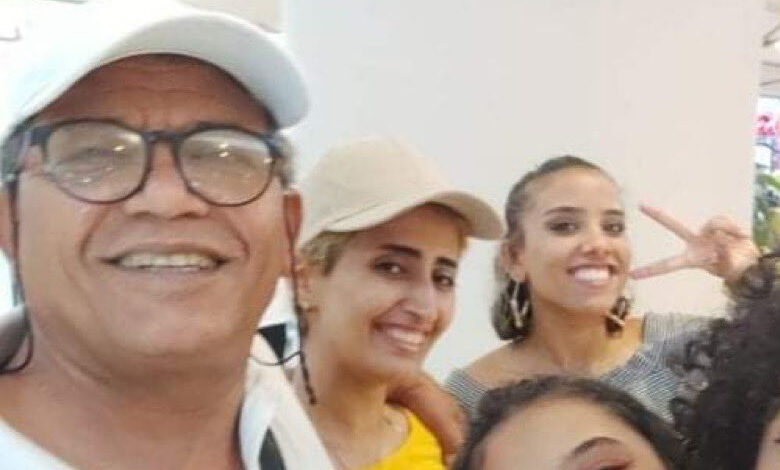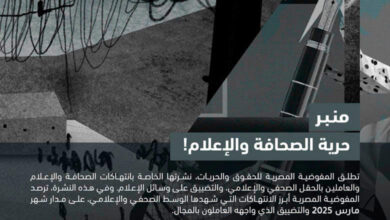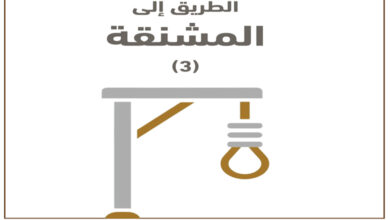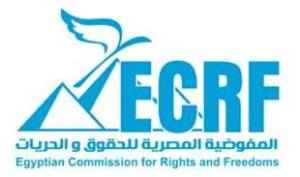
PALAIS DES NATIONS • 1211 GENEVA 10, SWITZERLAND
Mandates of the Working Group on Arbitrary Detention; the Working Group on Enforced or Involuntary Disappearances; the Special Rapporteur on extrajudicial, summary or arbitrary executions; the Special Rapporteur on the promotion and protection of the right to freedom of opinion and expression; the Special Rapporteur on the human rights of migrants; the Special Rapporteur on minority issues and the Special Rapporteur on freedom of religion or belief
Ref.: UA EGY 4/2022
(Please use this reference in your reply)
30 June 2022
Excellency,
We have the honour to address you in our capacity as Working Group on Arbitrary Detention; Working Group on Enforced or Involuntary Disappearances; Special Rapporteur on extrajudicial, summary or arbitrary executions; Special Rapporteur on the promotion and protection of the right to freedom of opinion and expression; Special Rapporteur on the human rights of migrants; Special Rapporteur on minority issues and Special Rapporteur on freedom of religion or belief, pursuant to Human Rights Council resolutions 42/22, 45/3, 44/5, 43/4, 43/6, 43/8 and 49/5.
In this connection, we would like to bring to the attention of your Excellency’s Government information we have received concerning the arbitrary detention, enforced disappearance and prosecution of Mr. Abdulbaqi Saeed Abdo.
Mr. Abdo is a member of the Christian Yemeni minority recognized as a person of concern by UNHCR. He is currently facing an imminent risk of refoulement to Yemen.
According to the information received,
On 15 December 2021, at approximately 2.00 am, around five plain-clothed police arrested Mr. Abdo at his home in Cairo and took him away without informing him or his family about where he was taken. Those abducting him did not indicate on which grounds they were doing so. Two police cars were seen on the street in front of the apartment and additional men wearing police uniforms were standing at the stairwell.
When Mr. Abdo opened the door to the policemen, they entered the house and proceeded to conduct a search. The police confiscated Mr. Abdo’s laptops, telephone, passport and UNHCR card. They also took photos of the rest of the family’s identification documents.
For two weeks, the family did not receive any information about the whereabouts of Mr. Abdo. On 28 December 2021, an individual who had been in the same prison as Mr. Abdo called a member of his family and informed that Mr. Abdo was held in Central Giza prison. The individual also recommended the family to ask a Christian TV channel, “ ”, to remove from YouTube some interviews released by Mr. Abdo, in which he publicly
described his conversion to Christianity and the alleged persecution faced in Yemen for this reason as a member of this religious minority.
On 28 December 2021, a member of the family of Mr. Abdo went personally to the Central Giza Prison to request information about his whereabouts. Prison officials informed that Mr. Abdo had been indeed detained in the Central Giza Prison but was not present that day as he had been brought to the Supreme State Security Prosecution in the Fifth Settlement of Cairo. Prison officials told the family members that Mr. Abdo was facing charges for “spreading lies in society”. On that date, Mr. Abdo’s lawyer was informed by the Supreme State Security Prosecution’s facilities that he was not present there and that there were no records of him being tried. The family was denied access to the Supreme State Security Prosecution’s facilities.
On 4 January 2022, a member of Mr. Abdo’s family was able to visit him in the Central Giza Prison and confirm his whereabouts for the first time since his detention on 15 December 2021. Mr. Abdo was wearing the same clothes that he wore when he was arrested. It turned out that following his arrest, the police brought him to an underground high-security detention facility where he was secretly kept for 10 days before being moved to the Central Giza Prison. He was brought four times a week before a judge for investigation purposes, without the presence of a lawyer. During the interrogations, he was repeatedly questioned for sharing on a Facebook group called “ ” (a name used by Christians from a Muslim background to describe themselves) some interviews transmitted by the Christian TV channel , which were conducted by an Egyptian TV host who converted from Islam to Christianism. He was also interrogated about a TV interview that he personally released on where he publicly discussed his Christianity.
As indicated in a document produced by the Prosecutor in the case (Criminal Case number: 2993), Mr. Abdo is being investigated for joining a terrorist group according to art. 86, 86 bis and 86 bis (A) of the Egyptian Penal Code and for joining a Facebook group of Christian converts. He has also been investigated for contempt of Islamic religion, under art. 98 (w) of the Penal Code, and for discrimination against Islam according to art 161 bis of the Penal Code. According to art 86, 86 bis and 86 bis (A), a terrorist organisation is any organisation, association, group or a gang whose purpose is the disruption or suspension of the constitution and the laws, or preventing any of the State and public authorities from exercising their functions, or any attack on the personal freedom of a citizen, or other freedoms. According to art. 98 (F) of the Penal Code, commits a crime whoever exploits and uses the religion in advocating and propagating by talk or in writing, or by any other method, extremist thoughts with the aim of instigating sedition and division or causing humiliation and contempt for one of the monotheistic religions or the denomination belonging to it, or prejudicing national unity or social peace. According to art. 161 bis of the Penal Code, commits a crime whoever commits an act that would cause discrimination between or against individuals, a group of people based on
gender, origin, language, religion, or creed, and this discrimination resulted in a loss of the principle of equal opportunity or social justice or disturbing the public peace.
The Prosecutor specified that the evidence of the commission of these crimes is based on anti-Islam messages posted by Mr. Abdo, as well as on his participation in talks on the satellite channels such as . This evidence would be constituted by two videos posted in ’s YouTube channel containing two interviews that were broadcasted in June and July 2019.
Mr. Abdo is currently kept in pre-trial detention to permit the investigations on the accusations to be pursued. Mr. Abdos’ lawyer has not received information about any upcoming trial against his client and has not been allowed to discuss the case with Mr. Abdo. He was authorized to see his client only every 45 days, during hearings in which the pretrial detention has been extended. Visits from his wife were allowed once a month. Mr. Abdo was also asked to sign the reports of his interrogations without being allowed to see the actual text.
The health conditions of Mr. Abdo have significantly deteriorated in detention; he has considerably lost weight and has not been provided by authorities with appropriate medical treatment, which he needs on a regular basis for chronic heart and liver ailments.
Mr. Abdo suffered previous acts of persecution because of his religious belief as a Christian minority in Yemen. A close relative of Mr. Abdo was reportedly persecuted and murdered in Yemen for being a Christian.
On 23 June 2022, Mr. Abdo was taken by Egyptian authorities to the Embassy of Yemen and was requested to hand over his passport. After his refusal, the Embassy issued a document valid for one month which was reportedly aimed at allowing the deportation of Mr. Abdo within the following 30 days.
Without prejudging the accuracy of the information received, we wish to express our serious concern about what appears to be the arbitrary arrest, detention, enforced disappearance and prosecution of Mr. Abdo, for the peaceful exercise of his religious beliefs. We are also concerned by what appears to be a deliberate refusal by the Egyptian authorities to acknowledge the detention of Mr. Abdo after he was openly arrested by the police; their refusal to inform the family and his lawyer of his fate and whereabouts amounts to an enforced disappearance. We are further concerned about the denial of due process guarantees and judicial safeguards. We note that Mr. Abdo is being prosecuted on the grounds that he publicly spoke about his conversion to Christianity, which, if confirmed, would amount to the judicial persecution of an individual for the peaceful holding and expression of his religious beliefs. Last, we are concerned that the Egyptian authorities took Mr. Abdo to the Yemeni Embassy in Cairo, informed them of his prosecution, and the grounds for that prosecution (his conversion) and therefore the risk for his personal safety, and possibly his life, should it be forcibly deported to Yemen. On these grounds, we respectfully urge your
Excellency’s Government to protect the right to freedom of religion and belief of Mr. Abdo, and refrain from any decision that may cause irreparable damage to his safety, liberty, integrity or to life.
Under international law, prolonged incommunicado detention amounts to enforced disappearance. The failure to acknowledge the deprivation of liberty of a person by State agents or the refusal to acknowledge the detention of that person after her arrest constitutes an enforced disappearance, regardless of the duration of the deprivation of liberty or concealment concerned. Also, by apprehending and detaining individuals, the State assumes responsibility for their life, physical integrity and health. This place on the authorities a heightened duty of care, obliging them to take necessary measures to protect the lives of all individuals that they have deprived of their liberty. Inadequate or substandard conditions of detention can be a factor contributing to ill- health, which may cause long-term irreparable damage, and possibly death.
Article 9 of the International Covenant on Civil and Political Rights (ICCPR) ratified by Egypt on 14 January 1982 enshrines the right to liberty and security of person and establishes in particular that no one shall be deprived of his or her liberty except on such grounds and in accordance with such procedure as are established by law. Article 9(4) of the ICCPR states that “anyone who is deprived of his liberty by arrest or detention shall be entitled to take proceedings before a court, in order that that court may decide without delay on the lawfulness of his detention and order his release if the detention is not lawful.” According to article 14(1), “everyone shall be entitled to a fair and public hearing by a competent, independent and impartial tribunal established by law”; and article 14(3) states that “in the determination of any criminal charge everyone shall be entitled to the following minimum guarantees, in full equality: (b) to have adequate time and facilities for the preparation of his defense and to communicate with counsel of his own choosing.” In its General Comment No. 32, the Human Rights Committee further indicated that “adequate facilities‟ must include access to documents and other evidence; this access must include all materials that the prosecution plans to offer in court against the accused or that are exculpatory.
The forced deportation to Yemen of Mr. Abdo may put his personal safety, his liberty, his integrity and his life in danger and may expose him to arbitrary arrest, detention, and unfair fair trial for the mere holding and peaceful expression of his religious beliefs – rights which are protected by Articles 6,7,9,14, and 18 of the ICCPR.
The principle of non-refoulement forms an essential protection under international human rights, refugee, humanitarian and customary law. Non-refoulement prohibits all forms of removal and transfer of any individual, regardless of their status, when there are substantial grounds for believing that the individual would be at risk of irreparable harm, such as death, torture or cruel, inhuman or degrading treatment or punishment, persecution, enforced disappearance or other serious human rights violations, in the place to which they are to be transferred or removed. In this regard, we would like to draw the attention of your Excellency’s Government to General Comment No. 31 of the Human Rights Committee, which specifies that State obligations under Article 2 of the International Covenant on Civil and Political Rights
entail “an obligation not to extradite, deport, expel or otherwise remove a person from their territory, where there are substantial grounds for believing that there is a real risk of irreparable harm” (para. 12). The principle of non-refoulement under international human rights law is characterized by its absolute nature without any exception, applying to all persons, including all migrants, at all times, irrespective of their citizenship, nationality, statelessness or migration status.
The United Nations Declaration on the Protection of All Persons from Enforced Disappearance. In particular, article 8 of the Declaration, which establishes that no State shall expel, return (refouler) or extradite a person to another State where there are substantial grounds to believe that he would be in danger of enforced disappearance. For the purpose of determining whether there are such grounds, the competent authorities shall take into account all relevant considerations including, where applicable, the existence in the State concerned of a consistent pattern of gross, flagrant or mass violations of human rights. We are further drawing your Excellency’s Government’s attention to the absolute and non-derogable prohibition against enforced disappearances (articles 2 and 7). The Declaration also proclaims that each State shall take effective legislative, administrative, judicial or other measures to prevent and terminate acts of enforced disappearance in any territory under its jurisdiction. In particular, articles 9-13, provide for the rights to a prompt and effective judicial remedy to determine the whereabouts of persons deprived of their liberty; to access of competent national authorities to all places of detention; to be held in an officially recognized place of detention, and to be brought before a judicial authority promptly after detention; to accurate information on the detention of persons and their place of detention being made available to their family, counsel or other persons with a legitimate interest; and to ensure that all involved in the investigation are protected against ill-treatment, intimidation or reprisal.
In view of the urgency of the matter, we respectfully urge your Excellency’s Government to uphold the cardinal principle of international human rights, humanitarian and refugee law of non-refoulement and not to deport Mr. Abdo to Yemen, where he may be subject to serious human rights violations because of his religious beliefs as a member of a Christian minority.
We would like to remind that the duty to respect and ensure the right to life requires States parties to refrain from deporting, extraditing or otherwise transferring individuals to countries in which there are substantial grounds for believing that a real risk exists that their right to life under Article 6 of the ICCPR would be violated (CCPR/C/GC/36, para. 30). Additionally, State parties to the ICCPR must adopt special measures and respond urgently and effectively in order to protect individuals who find themselves under a specific threat (CCPR/C/GC/36, para 23).
The rights to freedom of religion or belief, and of its peaceful expression are protected under international law by Article 18 of and 19 of ICCPR. In this regard, the 1981 United Nations Declaration on the Elimination of All Forms of Intolerance and of Discrimination Based on Religion or Belief (A/RES/36/55), states in its Article 2 (1): “[n]o one shall be subject to discrimination by any State, institution, group of persons,
or person on grounds of religion or other belief”. Furthermore, we would like to refer your Government to Article 4(2), according to which: “All States shall make all efforts to enact or rescind legislation where necessary to prohibit any such discrimination, and to take all appropriate measures to combat intolerance on the grounds of religion or other beliefs”. In its General Comment No. 35, the Human Rights Committee has found that the arrest or detention as punishment for the legitimate exercise of the rights as guaranteed by the Covenant is arbitrary, including freedom of religion (art. 18). It has also stated that arrest or detention on discriminatory grounds in violation of article 2, paragraph 1, article 3 or article 26 is also in principle arbitrary.
Recognizing that Mr. Abdo is a person belonging to religious minorities in both Egypt and Yemen, we would like to bring to your Excellency’s Government’s attention the provisions of the 1992 Declaration on the Rights of Persons Belonging to National or Ethnic, Religious and Linguistic Minorities. Article 1 of the Declaration requires States to protect the existence and identity of national or ethnic, cultural, religious and linguistic minorities within their territories and to “adopt appropriate legislative and other measures to achieve those ends”. Additionally, Article 4.1 notes the obligation of States to ensure that persons belonging to minorities may exercise their human rights without discrimination and in full equality before the law.
Last, we wish to underscore that according to the information received, Mr. Abdo is a person of concern to the UNHCR, due to his enhanced vulnerability in both Yemen and Egypt because of his conversion to Christianism. For the same reasons, he is a person of serious concern to our mandates.
The full texts of the human rights instruments and standards recalled above are available on www.ohchr.org or can be provided upon request.
We are issuing this appeal in order to safeguard the rights of Mr. Abdo from irreparable harm and without prejudicing any eventual legal determination.
As it is our responsibility, under the mandates provided to us by the Human Rights Council, to seek to clarify all cases brought to our attention, we would be grateful for your observations on the following matters:
- Please provide any information and comment you may have on the above-mentioned allegations;
- Please provide detailed information about the current status of the judicial proceedings initiated against Mr. Abdo, the established legal and procedural safeguards designed to protect his rights under the law – national and international – and how these safeguards are effectively implemented;
- Please provide information on the compatibility of the arrest, prolonged incomunicado detention, enforced disappearance, denial of due process and fair trial, on what appear to be religious grounds with the
international legal obligations of the state of Egypt, notably its duty to protect the rights to freedom of religion, belief and peaceful expression.
- Please provide information about the compatibility of the possible forcible deportation of Mr. Abdo to Yemen – while he is one of the several thousands of persons of concern to UNHCR in Egypt – with the 1951 refugee Convention ratified by Egypt, along with the 1967 Protocol, and the 1969 OAU Convention Governing the Specific Aspects of Refugee Problems in
- Please provide the details, and where available the results, of any inquiry, judicial or otherwise, carried out in relation to the prosecution of Mr. Abdo, so as to determine his legal rights under the international human rights, humanitarian and refugee law instruments acceded to by the state of Egypt and their
- In particular, please provide detailed information about the steps taken by the Egyptian authorities to research, assess and determine the risks that Abdo may face should be forcibly deported to Yemen, especially with regards to his rights to life, liberty, personal security and freedom of religion and peaceful expression.
- Please provide information on the current state of health of Mr. Abdo and on the medical treatment received while in detention;
- Please provide information on any measures taken to investigate the alleged arbitrary detention and enforced disappearance of Mr. Abdo, to identify, prosecute and, where appropriate, sanction those responsible. In case no such investigation has been launched, please provide the
We would like to inform your Excellency’s Government that after having transmitted the information contained in the present communication to the Government, the Working Group on Arbitrary Detention may also transmit the case through its regular procedure in order to render an opinion on whether the deprivation of liberty was arbitrary or not. The present communication in no way prejudges any opinion the Working Group may render. The Government is required to respond separately to the allegation letter and the regular procedure.
Given the urgency of matter in the light of the risk Mr. Abdo may face if he is forcibly deported, we respectfully draw your attention to his case to see to it that his rights under both Egyptian legislation and international law binding on Egypt, are assessed and effectively protected; and that in the event that investigations establish that his rights have been and continue to be violated, prompt consideration be given to his release, and that any person found to have violated his rights is held accountable.
While we may publicly express our concerns in the near future in this case, we would be grateful for a prompt response to this letter. The judicial prosecution of rights, which are protected under international law, is a matter that should be given serious attention. We also believe that should these internationally-recognized rights be subjected to judicial prosecution under domestic law, the general public should be informed. Any public expression of concern on our part will indicate that we have been in touch with the Government to clarify the issue/s in question.
This communication and any response received from your Excellency’s Government will be made public via the communications reporting website within 60 days. They will also subsequently be made available in the usual report to be presented to the Human Rights Council.
Please accept, Excellency, the assurances of our highest consideration.
Mumba Malila
Vice-Chair of the Working Group on Arbitrary Detention
Luciano Hazan
Chair-Rapporteur of the Working Group on Enforced or Involuntary Disappearances
Morris Tidball-Binz
Special Rapporteur on extrajudicial, summary or arbitrary executions
Irene Khan
Special Rapporteur on the promotion and protection of the right to freedom of opinion and expression
Felipe González Morales
Special Rapporteur on the human rights of migrants
Fernand de Varennes
Special Rapporteur on minority issues
Ahmed Shaheed
Special Rapporteur on freedom of religion or belief





